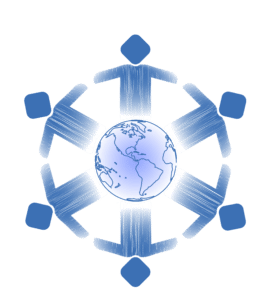Democratizing health science education to tackle global issues challenging healthcare.
Healthcare workers are essential to communities globally. They provide vital services necessary to enhance the quality of life, build and sustain healthcare systems, and strengthen global health. Healthcare workers help to address some of the world’s biggest problems and crises, including health-related outbreaks, epidemics and pandemics, the global disease burden and fight against chronic and infectious diseases, and health-related problems resulting from issues such as food shortages and malnutrition, climate change, and air pollution, among other problems.
Like any other sector, healthcare and healthcare workers face challenges, and these challenges can be severe enough to threaten or even cripple healthcare systems globally. Challenges such as healthcare worker shortage with understaffed healthcare facilities, a spiraling chronic disease problem, increasing addiction and substance use disorders with limited or insufficient specially trained healthcare professionals to address these, and severe health inequity that restricts the ability of low-and-middle-income countries (LMICs) and other resource-constrained communities to provide quality healthcare for persons who need it most.

The World Health Organization estimates that there will be a 15 million healthcare worker shortage by 2030 (WHO), and this shortage has grave implications for healthcare systems globally. Moreover, it further exacerbates other major challenges already affecting healthcare systems. A worker shortage of this magnitude, if not addressed urgently, will have a significant negative impact on the delivery of essential and effective healthcare, and further restricts healthcare access for people around the world, especially in LMICs and resource-constrained communities. Additionally, this is likely to increase the workload of existing healthcare professionals everywhere, and this will intensify issues of burnout and stress among healthcare workers, which in turn will affect the quality of care delivered to patients. Therefore, this issue requires urgent action that prioritizes the training of healthcare workers and promotes flexible, innovative, accessible and budget-friendly avenues for persons interested in acquiring or developing knowledge and skills in health science. The World Health Organization has asserted that “… not enough people are currently in the training process and that gap is at risk of growing wider.” (WHO).
Conventional health science education and training are useful in addressing some of these challenges, but may not be sufficient. According to Madhok et al., (2018), “Traditional higher education models have proven insufficient and inappropriate to solve the workforce challenge and build capacity, particularly in Low- to Middle-Income Countries (LMICs)” (p.91). This is primarily because access to traditional models of health science education includes high costs, inflexibility, and restricted access to resources, all of which make them insufficient in tackling the issue efficiently and rapidly. For countries and communities with limited resources to invest in healthcare training or even regions such as sub-Saharan Africa that carry a quarter of the world’s disease burden (WHO, 2009), this can be detrimental. Therefore, new approaches in training and education are necessary to increase the numbers of healthcare workers, build their capacity in areas such as lifestyle medicine, addiction, and addiction medicine, and create a transformational impact for global healthcare systems, especially those in LMICs and resource-constrained communities.

Web-based training is an effective, innovative, and transformational approach to delivering health science training, and provide much-needed support for healthcare systems in addressing growing concerns and challenges. Research shows that web-based training democratizes health education and provides opportunities in many areas of the health science field: “…health sciences education, disease surveillance, public health ethics, integrity, needs assessments, telemedicine, local professional opportunities, and funding” (Frank, 2008, p. 1). Moreover, web-based training has an advantage, compared to traditional models in terms of its accessibility and flexibility. Learners can access the resources from anywhere in the world and in a way that suits their schedule.
With the growing burden of chronic diseases in LMICs and resource-constrained regions such as sub-Saharan Africa, coupled with a lack of access to healthcare and scarcity of resources to address the issue, a cost-effective solution such as web-based health science training/education is appropriate to address the problem. The research shows that learners can acquire from web-based training the required knowledge and skills to function efficiently in healthcare, and at comparable standards to traditional educational models. For instance, a 2014 study conducted in Kenya explored the use of the NextGenU.org learning platform to build capacity in substance use disorders. The study determined that the use of the NextGenU.org learning platform, which was invented in 2001 to democratize education, developed knowledge among learners at comparable levels with traditional models (Clair et al., 2019). This is a significant discovery of the research.
If we are to tackle global health-related issues efficiently, primarily those surrounding lifestyle diseases and addiction, there is a need to improve knowledge and understanding of substance use disorders, lifestyle medicine, and addiction medicine. The WHO identifies the lack of training as a barrier to providing effective interventions for addiction (2016). Stigma is another such barrier surrounding this. The research has shown that enhanced knowledge in these areas helps to amplify counseling efforts among healthcare workers. According to Barron et. al (2012), “Physicians who participated in SIMS were not more likely to practice addiction medicine or to view talking to patients about substance use as clinically relevant” (p.131). Furthermore, addiction training/ education demonstrated that participants were more likely to believe they could help persons suffering from addiction following their training. There has also been some success in this area using the NextGenU.org learning platform. Clair et al. (2019) highlight that training not only helped to improve knowledge, but changed attitudes towards addiction: “learners’ improvements in knowledge, skills, and stigma-related attitudes were comparable to those seen in “gold standard,” contact-intensive, and costly educational models” (p.1068). Training in addiction and addiction medicine also helps to inspire confidence among healthcare professionals in their counseling efforts with patients, and improve care (Clair et al., 2016).

Web-based training facilitates continuous professional development and is a much-needed approach to reaching practitioners all around the world. It is a successfully proven approach to building the capacity of healthcare professionals globally. Web-based training, and learning platforms such as NextGenU.org, not only play a major role in increasing knowledge and improving skills in healthcare workers (new and current) appropriately, rapidly, and effectively, but quite significantly is an effective approach to tackle some of the world’s most pressing healthcare issues. To date, the NextGenU.org learning platform has had learners from every country that have accessed the courses and resources from over 300 universities. Learners have included physicians, staff from healthcare facilities, medical students, and community health workers, to name a few. Additionally, NextGenU.org’s courses are utilized by countless instructors from universities all across the globe.
Web-based training may be integral in addressing the imminent healthcare worker shortage, the global chronic disease burden, severe health inequities that disadvantage LMICs and other resource-constrained communities, and other global issues impacting health and healthcare. It is a transformational approach to health science education that will in turn have a significant positive impact on global health.
In our next blog, we explore some discoveries and key takeaways from the research on Medical Students and Addiction. Stay tuned!
References
Ballew, P., Castro, S., Claus, J., Kittur, N., Brennan, L., Brownson, R. (2013). Developing web-based training for public health practitioners: what can we learn from a review of five disciplines? Health Education Research, 28 (2).
Barron R, Frank E, Gitlow S. 2012. Evaluation of an Experiential Curriculum for Addiction Education Among Medical Students. Journal of Addiction Medicine; 6:131-136.
Caruso, C. (2020, January 16). These Are the 13 Most Pressing Global Health Issues This Decade. Global Citizen.
Clair V, Rossa-Roccor V, Mokaya AG, Mutiso V, Musau A, Tele A, Ndetei D, Frank E. 2019. Peer and Mentored Enhanced Web-Based Training on Substance Use Disorders: A Promising Approach in Low-Resource Settings to Teach Knowledge and Skills and Decrease Stigma. Psychiatric Services.
Heller R, Madhok R, Frank E. 2018. Building Public Health Capacity through Online Global Learning. Open Praxis.
Rossa-Roccor V, Malatskey L, Frank E. g. 2017 NextGenU.org’s Free, Globally Available Online Training in Lifestyle Medicine. Am J Lifestyle Med.
Clair V, Mutiso V, Musau A, Frank E, Ndetei D. 2016. Online learning improves substance use care in Kenya: Randomized control trial results and implications. Annals of Global Health. 2016 May 1;82(3):320-1.
Frank E. 2010. Health Sciences Online: an extraordinary opportunity for the democratization of health sciences knowledge. Cerebrospinal Fluid Research; 7:S53.
Frank E, Nimalasuriya K, Tairyan K, Grajales FJ, Segura C, Wruck M. 2009. A Transformation in Health Sciences Education: A Description of Health Sciences Online. Medical Informatics in a United and Healthy Europe.
Frank E. 2008. Health Sciences Online: 8+ revolutions and 10+ brief analyses. Open Medical Education Journal; 1:1-4. http://www.bentham.org/open/tomededuj/openaccess2.htm
Regmi K., and Jones, L. (2020). A systematic review of the factors – enablers and barriers –affecting e-learning in health sciences education. BMC Medical Education, 20 (91).
World Health Organization. Encouraging medical education to bolster the global health care workforce.
World Health Organization. (2022, June 2). Global Strategy on Human Resources for Health: Workforce 2030: Reporting at Seventy-fifth World Health Assembly.
World Health Organization (WHO). Health workforce. https://www.who.int/health-topics/health-workforce#tab=tab_1
Aduke Williams
Author

